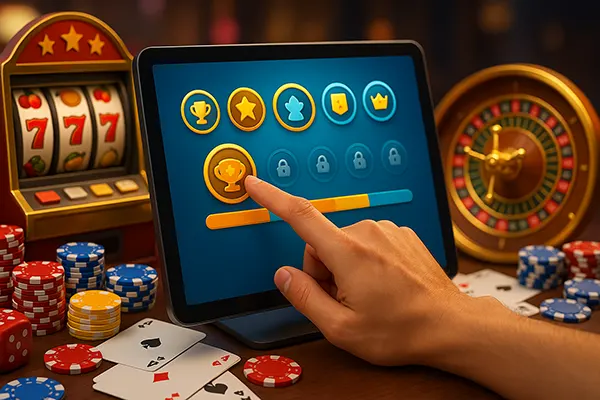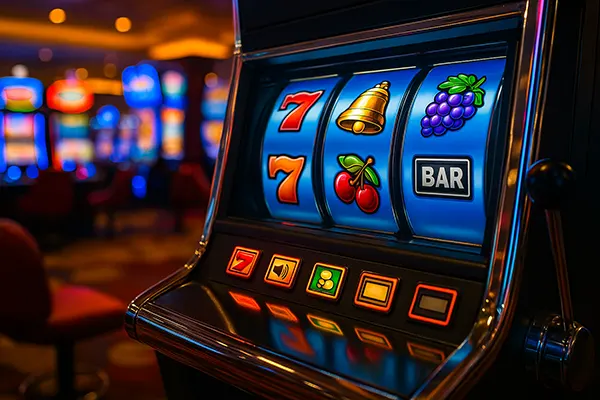Live Casino in the 5G Era: How Ultra-Fast Connectivity Is Redefining Real-Time Gaming

The arrival of 5G technology marks a turning point for the live casino sector, setting new standards for speed, reliability, and interactivity. With data transfer rates up to 100 times faster than 4G, players can now enjoy seamless live dealer experiences without interruptions or latency issues. This transformation is not merely technical; it’s reshaping how people perceive real-time gaming, from mobile users to professional gamblers seeking an authentic casino atmosphere from anywhere in the world.
How 5G Enhances Live Casino Experiences
5G networks offer ultra-low latency—often below 10 milliseconds—allowing for instant reactions between the player and dealer. This results in flawless video streaming, crisp audio, and smooth gameplay even during peak usage hours. The technology removes previous connectivity barriers, making live games more reliable and accessible for mobile users on the move.
High-definition streaming is now the standard rather than a luxury. Live casino providers have started implementing 4K video feeds and multi-camera angles, creating a cinematic environment that captures every detail of the table, dealer gestures, and card movements. This level of realism significantly increases player engagement and satisfaction.
In addition, the integration of advanced compression technologies supported by 5G means that data-heavy games can operate efficiently without consuming excessive bandwidth. This efficiency benefits both operators and players, ensuring consistent performance even in regions with high user density.
The Role of Cloud Gaming and 5G Synergy
The combination of cloud infrastructure and 5G creates the foundation for a new generation of live casinos. Instead of relying on local hardware, game processing can occur on remote servers with instant feedback. This allows casinos to scale faster, deliver smoother performance, and introduce innovative features like real-time analytics and adaptive betting interfaces.
For players, this means that high-quality live casino games are no longer confined to desktop systems. Mobile gaming apps and web browsers can now host immersive live experiences with minimal device requirements. It also opens possibilities for cross-device gaming—starting on a smartphone and continuing seamlessly on a tablet or smart TV.
Cloud integration also strengthens data protection and fairness, as all game results and transactions are handled through secure, monitored networks. This ensures that transparency and trust remain at the core of every gaming session.
Augmented Reality and Immersive Interaction
As 5G expands its reach, augmented reality (AR) is becoming an integral part of the live casino evolution. With faster connections and reduced latency, developers can integrate AR overlays that enhance player experience—such as displaying real-time statistics, dynamic odds, and live dealer profiles directly on the screen.
Players can virtually “sit” at a table with others, view 3D card animations, and interact using gestures or voice commands. This redefines what it means to participate in live gaming, offering an experience closer to visiting a physical casino while maintaining the convenience of digital access.
These technological upgrades also create new opportunities for social engagement. Gamers can communicate more naturally with dealers and fellow participants through high-quality audio and video chat without lag or disconnection issues, bringing human interaction back to the forefront of online entertainment.
Integrating 5G with VR Casinos
Virtual reality (VR) casinos are one of the most promising applications of 5G technology. The combination of real-time data transfer and high-resolution streaming enables fully immersive virtual environments where users can walk through casino floors, interact with digital dealers, and play table games as if they were physically present.
5G’s consistency allows VR systems to maintain fluid performance even during large multiplayer sessions. This could transform the traditional concept of live casinos into social, multi-sensory virtual experiences that appeal to both tech enthusiasts and casual players alike.
Developers are already experimenting with hybrid systems that combine live dealers with VR settings. This approach merges the authenticity of human interaction with the limitless design possibilities of virtual environments—an innovation that could become mainstream within the next few years.

Security, Fairness, and Responsible Gaming
As connectivity improves, so does the need for robust cybersecurity and player protection mechanisms. 5G enhances encryption and authentication systems, ensuring all transactions between players and operators remain private and tamper-proof. With more data moving across networks, maintaining transparency is essential for trust and compliance.
Regulators across Europe have begun adapting frameworks to include 5G-driven systems, requiring casinos to maintain real-time monitoring of game outcomes and financial transactions. This enhances fairness and accountability while ensuring that players are safeguarded from manipulation or data misuse.
Furthermore, the efficiency of 5G enables advanced responsible gaming tools—such as instant spending alerts, time limits, and AI-based risk assessments. These features can detect problematic behaviour in real time and provide immediate support, promoting a safer gaming environment for all users.
What the Future Holds for 5G Live Casinos
By 2025, the 5G revolution will have redefined the live casino landscape entirely. Operators will rely on interactive technologies, AI-driven dealers, and fully synchronised multi-camera systems that adapt to player preferences. The combination of speed, realism, and innovation will attract a new generation of gamers who value both entertainment and authenticity.
Future advancements may also include holographic gaming environments where players interact with life-sized digital dealers in real time. Such developments could blur the lines between virtual and physical spaces, creating a hybrid model of gambling that’s both futuristic and deeply engaging.
Ultimately, the success of live casinos in the 5G era will depend on balancing innovation with responsibility. While technology continues to enhance user experience, maintaining ethical standards and secure gameplay will remain central to sustaining trust and industry growth.




